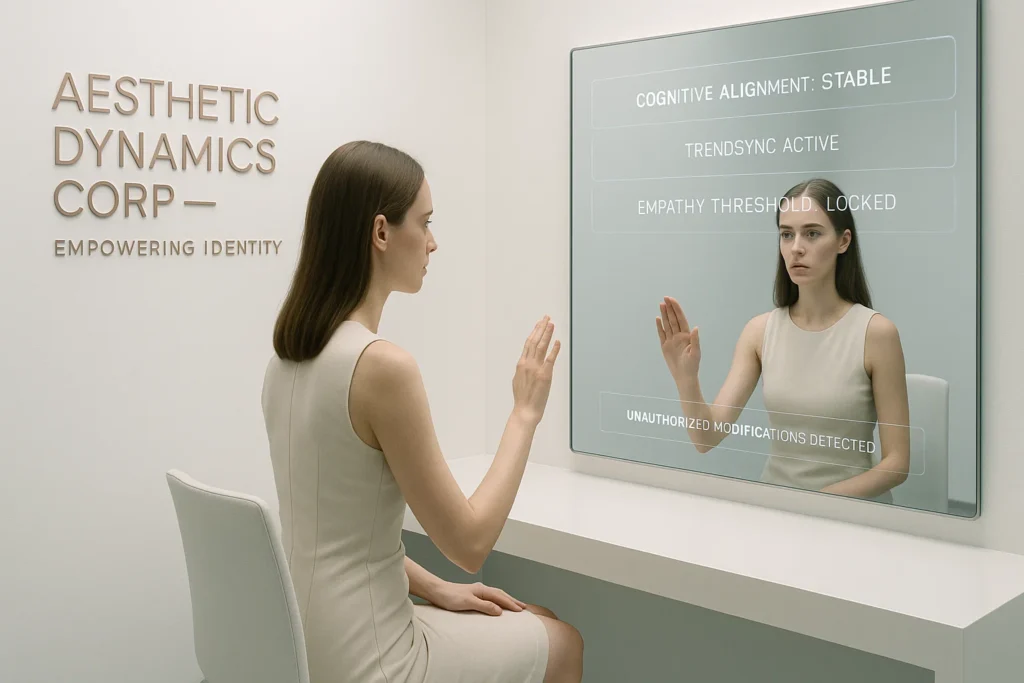Two months inside Project Mirror and I have to take regular walks through Hyde Park just to remember what unfiltered reality looks like.
The corporate structure behind my fictional beauty-tech empire is becoming terrifyingly plausible. I’m calling them Aesthetic Dynamics Corp – chose the name for its bland corporate poetry, the kind that hides sinister business models behind mission statements about “democratizing beauty.” They don’t sell beauty, they lease it. Your reflection becomes subscription content.
My protagonist’s arc is breaking my heart in the best possible way. She starts as someone who genuinely believes in the mission – eliminating ugliness, insecurity, the random cruelty of genetics. But when she gets promoted to service VIP accounts, she discovers something that reframes everything.
The technology doesn’t just standardize appearance. It standardizes cognition. The most beautiful people in her world aren’t just losing their original faces – they’re losing their capacity for original thought.
I had this breakthrough while mixing a custom shade for a client’s Cartier event. She wanted “Algorithmic Rose” – a color generated by some AI trend forecasting system. Watching her critique her own knuckles, I finally understood what my character would eventually discover: the beauty industry has always been about control. Neural implants just make the leash invisible.
I’m twenty-five thousand words in now. She just learned she’s been modified too. Her employers convinced her that technicians needed “aesthetic credibility” to service high-end clients. She thought her enhanced features were professional tools.
Now she’s starting to wonder what else they’ve enhanced. Memory, maybe. Loyalty. The capacity to question orders.
The most beautiful cage is the one you can’t see. She’s about to test those bars.
Posted from London, where even the mirrors feel like they’re watching back.
— Writer Julia Zolotova

